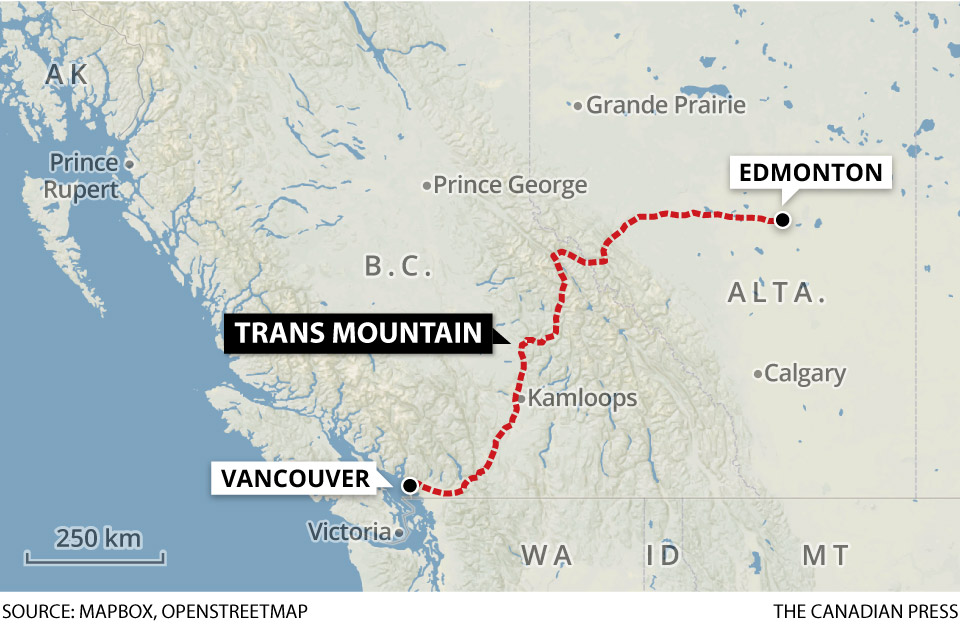A B.C. First Nation is speaking up in favour of the proposed Trans Mountain pipeline expansion project.

Chief Nathan Matthew of the Simpcw First Nation says he wants to address the impression that B.C.’s Indigenous communities are united in their opposition to the project.
READ MORE: Kinder Morgan CEO says Trans Mountain pipeline may be ‘untenable’
“That’s why we thought it was time to let people know that there are, or there’s at least one First Nation out there that has an agreement that they’re willing to say we have this agreement,” he told CKNW’s Lynda Steele Show.
“Obviously, we have concerns of different kinds, but it’s put into an agreement and we signed that agreement.”
The agreement was approved in a March, 2016 referendum which saw 91 members (78 per cent) vote ‘yes,’ while 25 voted ‘no.’
About one-third of the proposed project runs through the Simpcw’s central-B.C. territory.
The community is a part of the Secwepemc — or Shuswap — nation, with territory running from Barriere northeast to Jasper and north beyond McBride.
The Simpcw began negotiations with Trans Mountain parent company Kinder Morgan about a benefits-sharing agreement in 2015.
“It took two years of understanding what the pipeline is about, and the way it was going to be built, and the various risks that were going to be associated with it, so we were able to do our own environmental studies and to address anything that we thought was important in the agreement, and we did that,” he said.

Get breaking National news
“And we had community involvement… and we got to a point where we thought, ‘Well, we agree given the conditions we negotiated into the agreement.'”
According to Trans Mountain, of the more than 133 Aboriginal communities and groups with an interest in the pipeline or interests potentially affected by it, 43 have signed benefit agreements. Thirty-three of those groups are in B.C.
The Treaty Alliance Against Tar Sands Expansion has a list of 53 First Nations in B.C. that are against the project, including the Squamish and Tsleil-Waututh who have vocally led opposition on the South Coast.
WATCH: First Nation leader says ‘Rights as a nation… have not been met or honoured’ on pipeline

Matthew said in addition to a direct financial consideration written into the deal, his community expects to see other economic benefits from the pipeline.
Simpcw members would be in line for construction work, training and the opportunity to bid on contracts, he said.
“If the project doesn’t go, there would be quite a number of contracts… and people wouldn’t have the opportunity to work or contract to all of the different pieces of the construction,” he said.
As for the province’s handling of the project, Matthew said he believes Premier John Horgan has “handled it in the way that his party has determined to be appropriate.”
Matthew said in setting its own conditions on the project, the B.C. government has found itself in a political conflict with Alberta and Ottawa, however, he said that was a problem for Horgan and other politicians to solve.
“We’ve made our decision, and we’ve followed a process that we’ve followed in other natural resources in our territory,” he said.
- Board of Metro Vancouver’s CAO tight-lipped about status, cost of ‘leak’ investigation
- Watch the 60th annual Variety Show of Hearts Telethon
- ‘May be a thawing’ between Canada and U.S., B.C. premier says after tariff court ruling
- Guns in photo posted by Tumbler Ridge shooter’s mother were legal, expert says













Comments
Want to discuss? Please read our Commenting Policy first.